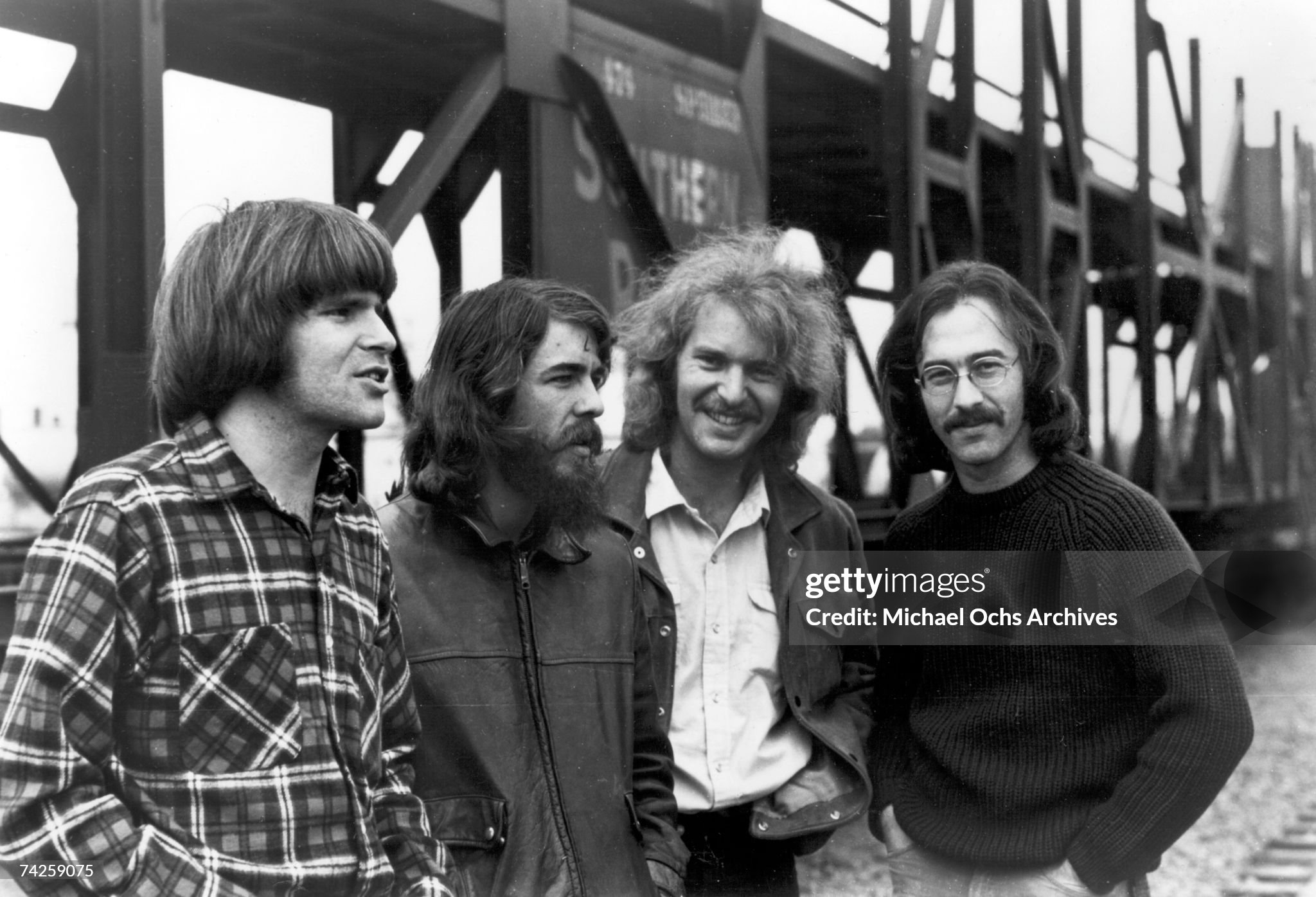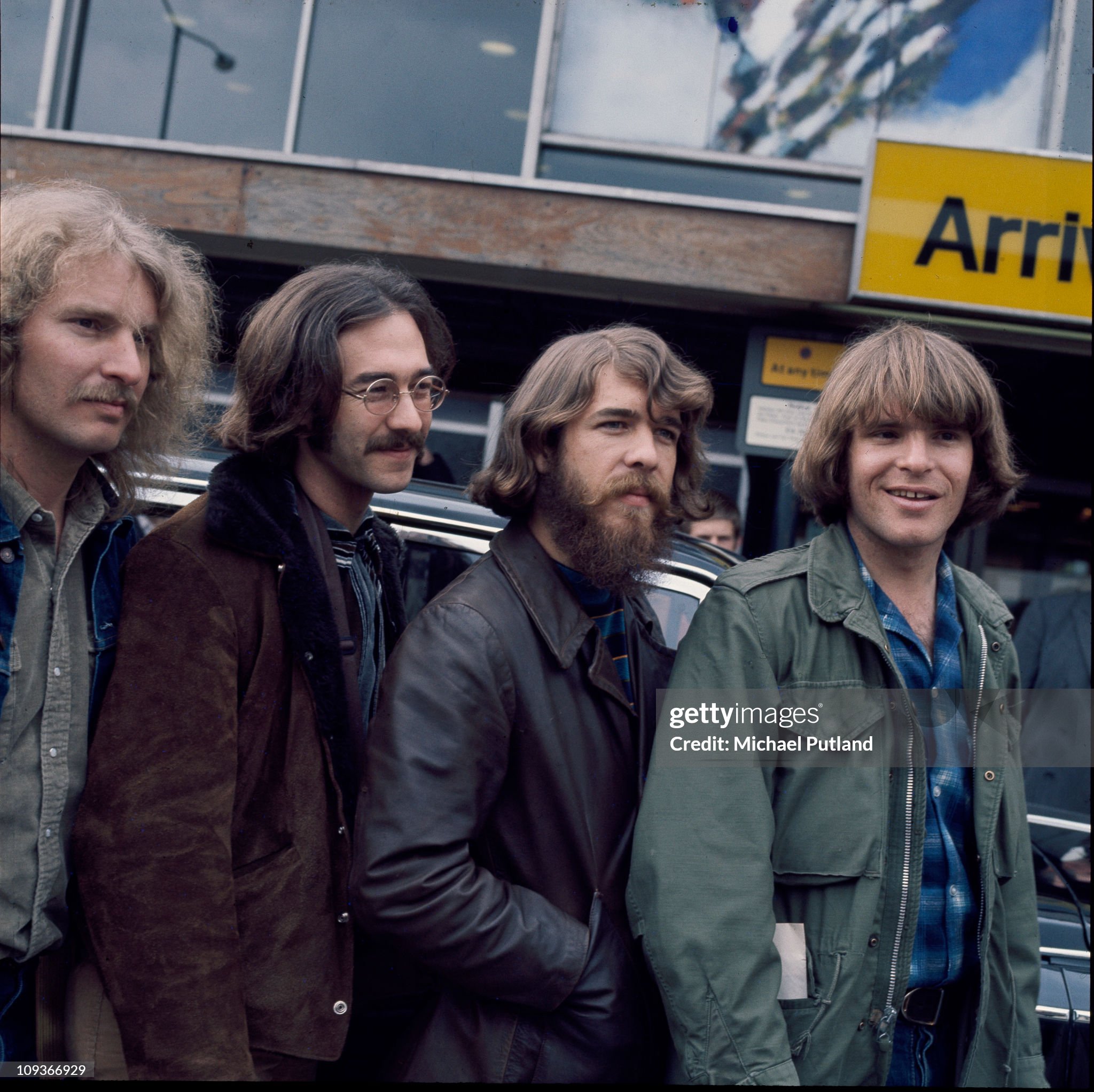
A Raw Plea from the Heart: When Love Turns Its Back
In the patchwork of American rock history, few bands have managed to bottle the spirit of the working-class South quite like Creedence Clearwater Revival. Their 1968 self-titled debut album may not have climbed the charts with the speed of their later hits, but hidden within its grooves is a lesser-known gem that pulses with emotional urgency: “Get Down Woman.” Though it never charted as a single, this track showcases a young band already steeped in Southern blues, swamp rock, and the kind of hard-earned wisdom that usually comes only with age.
Penned by frontman John Fogerty, “Get Down Woman” is a deceptively simple tune—a blues-rock number wrapped in the familiar CCR style, yet carrying the weight of a much older man’s lament. In many ways, it’s a song about reaching one’s limit. The narrator pleads with a woman who has pushed him too far, echoing the universal moment when patience runs dry and dignity must take its stand. It’s raw, it’s real, and it’s heartbreakingly human.
Released in July 1968 on the band’s debut album Creedence Clearwater Revival, “Get Down Woman” was not spotlighted as one of the lead singles—those honors went to their breakout cover of “Suzie Q,” which reached No. 11 on the Billboard Hot 100 and introduced CCR to a national audience. But for those who ventured deeper into the album, “Get Down Woman” stood out as an early indicator of Fogerty’s lyrical maturity and emotional depth. Long before “Have You Ever Seen The Rain” or “Lodi,” this track gave us a glimpse into the kind of storytelling that would later become his hallmark.
At its core, “Get Down Woman” is a bluesman’s ballad—a testament to hurt pride and fading love. The phrase “get down” here doesn’t carry the joyful connotation of dancing or celebration. Instead, it’s an emotional command: get down off your pedestal, come back to reality, or face being left behind. Fogerty delivers these lines not with anger but with a weary firmness, like someone who’s loved too long without being loved back.
Musically, the track is stripped down—driven by a tight rhythm section and Fogerty’s gritty guitar work. There are no elaborate solos or studio tricks here. Just four guys playing straight from the gut, channeling their Bay Area roots through a distinctly Southern lens. This was always one of CCR’s most fascinating contradictions: Northern California boys who sounded like they grew up along the Mississippi Delta.
For older listeners—especially those who came of age in the late ’60s—“Get Down Woman” might stir memories of love gone wrong or relationships where imbalance became unbearable. It speaks to anyone who has ever had to walk away not out of anger, but necessity. There’s something timeless about that sentiment; whether you heard this track on vinyl in your parents’ living room or stumbled upon it decades later through digital rediscovery, its emotional clarity remains undiminished.
While it didn’t receive radio airplay or commercial acclaim at the time, fans and music historians alike now recognize “Get Down Woman” as one of those early CCR cuts that laid the foundation for their rapid ascent. It captures that fleeting moment when a young band still searching for its voice accidentally stumbles into greatness.
And perhaps that’s what makes it so special—not just for die-hard CCR fans but for anyone who knows what it feels like to give more than you get. In just under three minutes, Creedence Clearwater Revival delivers an entire chapter of heartache without ever losing their cool.
So if you’re revisiting old records on a quiet evening or introducing classic rock to someone younger, don’t skip over this track. Let it play. Let it speak. You might find yourself remembering someone—or something—you thought you’d forgotten.
Because sometimes it takes a song like “Get Down Woman” to remind us just how much we’ve lived through… and how much our hearts can hold.
